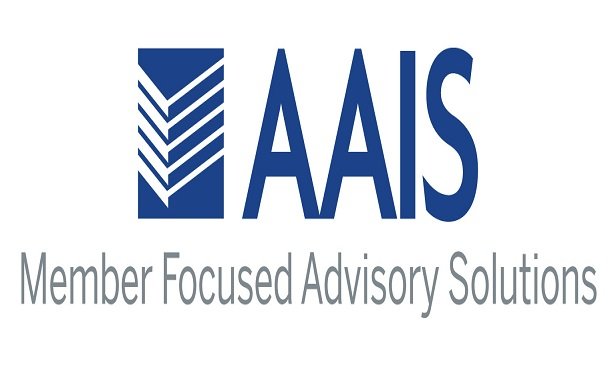The Obama administration announcement July 2 that it wasgoing to delay implementation of the employer mandate of theAffordable Care Act (ACA) until 2015 has thrown into a tailspinexpectations of the act's requirements and revised expectations forother provisions of the Act.
|Conservative politicians pounced.
|House Energy and Commerce Committee Chairman Fred Upton (R-MI)stated that “the Administration's sudden turnabout is a clearadmission that its signature law is bad for business and bad forjobs. This law will never be ready for prime time and sadly, theadministration's acknowledgement that it still needs yet anotheryear clearly disrupts everyone's ability to determine what is bestfor them and their business.”
|Regulators seemed a bit worried but were quick to come up withsolutions–if they had one.
|The California Department of Insurance pointed people toward thestate-operated health insurance exchange, expected to go intooperation Jan. 1, 2014.
|“Employees whose employers do not provide health insurance willbe able to purchase health insurance in California's new healthbenefit exchange.” stated Commissioner Dave Jones. He notedthat many will be eligible for a premium subsidy if they make lessthan 400 percent of the federal poverty level, which in Californiais about $94,000 for a family of four.
|Jones also urged the Administration to “make sure that thisprovision can be implemented in 2015.”
|Brokers say this delay will have tremendous consequences for theprivate marketplace.
|“No doubt this is a huge capitulation by the Administration,consistent with getting ahead of the potential politics of a messyimplementation,” stated Joel Wood of the Council of InsuranceAgents & Brokers.
|“Our members have mixed emotions about this. They've invested anastonishing amount of resources in running the pay-or-playscenarios for their clients and preparing for January. Thosewho haven't prepared their clients will revel in the news, andconservatives will sense blood in the water. On the other hand, themandate drives up the cost of labor; perhaps this is a modestmitigation,” Wood stated.
|Health insurance representatives shook their collective heads,and wondered if another shoe would drop in the ACAimplementation.
|On June 19, the Government Accountability Office (GAO) issued areport entitled “Status of CMS Efforts to Establish FederallyFacilitated Health Insurance Exchanges.
|“The detailed 50-page report raises a red flag about whether thehealth insurance exchanges established by the Patient Protectionand Affordable Care Act (PPACA) will be open for business onOctober 1, as the Act contemplates,” stated a July 2 emailalert from the American Health Lawyers Association.
|The Report notes that many states, with both future federalpartnership and state-operated exchanges, have not demonstratedthat they will be able to carry out the necessary functions to runthe exchanges or are behind on the timetables required to do so ina timely manner.
|“Because the Act effectively requires the federal government toundertake whatever exchange functions states fail to carry out, theprecise scope of what the federal government will need toaccomplish in order to ensure that the exchanges are up and runningis not yet clear and likely will remain something of a movingtarget until (and perhaps even after) the exchanges go live,” theAHLA stated.
|For its part, the Administration is perhaps hearing fromemployee benefit groups that the paperwork is too complex andemployers are not ready.
|It said that said the delay is designed to meet two goals.
|“First, it will allow us to consider ways to simplify the newreporting requirements consistent with the law,” said Mark J.Mazur, assistant secretary for tax policy at the U.S. Department ofthe Treasury, who first unveiled the new from he administration ona blog post on the Treasury site.
|The Treasury's IRS would levy the tax penalty for companies thatdid not comply with the mandate, when it goes into effect. IRSofficials have suggested that employers and their advisors shouldavoid using complicated strategies to try to minimize the number ofworkers who are eligible for group health benefits under PPACA. Itdid so back in late December in the preamble to draft regulationsfor implementing the “shared responsibility” parts of PPACA.
|PPACA calls for employers with more than 50 full-time equivalentemployees to provide a minimum level of health benefits foryear-round employees who work more than 30 hours per week. Workerswho do not offer the minimum level of coverage, or fail to ensurethat the coverage meets affordability requirements, are supposed topay penalties.
Mazur pointed to the Administration's work to reduce andsimplify its 21-page application for health insurance to threepages as an example of the effort it is giving the employer mandatereporting requirements.“Second, it will provide time to adapt health coverage andreporting systems while employers are moving toward making healthcoverage affordable and accessible for their employees,” Mazurwrote.
|Within the next week, the Administration is expected to publishformal guidance on its decision.
|For more on the PPACA delay, see:
|Want to continue reading?
Become a Free PropertyCasualty360 Digital Reader
Your access to unlimited PropertyCasualty360 content isn’t changing.
Once you are an ALM digital member, you’ll receive:
- All PropertyCasualty360.com news coverage, best practices, and in-depth analysis.
- Educational webcasts, resources from industry leaders, and informative newsletters.
- Other award-winning websites including BenefitsPRO.com and ThinkAdvisor.com.
Already have an account? Sign In
© 2024 ALM Global, LLC, All Rights Reserved. Request academic re-use from www.copyright.com. All other uses, submit a request to [email protected]. For more information visit Asset & Logo Licensing.








